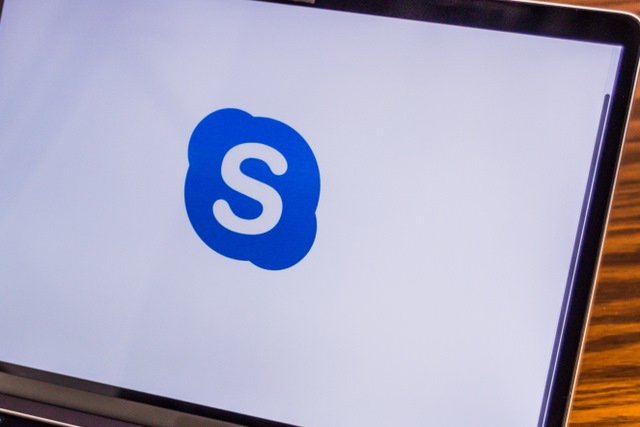
Most businesses struggle to get value from operational data
Organizations increasingly depend on data to drive improvements in all areas of the enterprise. But a new survey shows that data volumes are affecting productivity, with 68 percent of respondents saying their organization has so much data they struggle to make use of it all.
The study of 400 US and European business and IT professionals for Devo Technology, carried out by Vanson Bourne, shows that getting a unified view of information is challenging. 74 percent report their business is currently using different systems for real-time and historical data storage and analysis, and 95 percent say they face obstacles when trying to get a single view of data.

Forget Surface Go -- System76 offers huge back-to-school savings on Linux laptops
Next month, students across America will be returning to school. Whether K-12 or college, technology has become increasingly important in the classroom. It is for this reason that a laptop can be an essential tool for a learner.
Microsoft recently launched the Surface Go, and while the underpowered tablet looks like a decent enough option for students on a budget, let's be honest -- it isn't a true laptop. Its floppy keyboard (which is sold separately) means it is not sturdy on a lap. Not to mention, it is more of a secondary computer -- not a main PC. If you would rather equip the student in your life with a true computer, why not turn to Linux? After all, open source is the future of computing. System76 has a new back-to-school sale that makes buying a computer running Ubuntu or Pop!_OS much more affordable.

Manufacturing industry at greater risk of cyberattacks
Manufacturing businesses are seeing higher-than-normal rates of cyberattack-related reconnaissance and lateral movement activity.
This is due to the convergence of IT with IoT devices and Industry 4.0 initiatives, according to a new report from AI-powered attack detection specialists Vectra.

Facial recognition tool helps penetration testing
Using fake social media profiles is a common technique among hackers in order to gain the confidence of targets and direct them to credential stealing sites.
For security and penetration testing teams to replicate this is time consuming as often people have profiles across multiple sites. Ethical hacking specialist Trustwave is using a new tool called Social Mapper that can correlate profiles across multiple sites and make analyzing a person's online presence easier.

Twitter is not banning Alex Jones; Jack Dorsey explains why
Alex Jones and Infowars are being banned, suspended and removed from the internet left, right and center. But while YouTube, Facebook, Apple and others have come down hard on the right-wing conspiracy theorist for peddling hate speech, Twitter is standing by him.
Twitter founder Jack Dorsey has defended his company's decision not to follow the lead of its Silicon Valley counterparts, saying that Alex Jones "hasn't violated our rules". In a series of tweets, Dorsey explains that Twitter enforces its rules "impartially, regardless of political viewpoints".

Lure of cybercrime leads security professionals to become 'gray hats'
The attractions and profitability of the digital underworld are leading some security practitioners to become 'gray hats' and get involved in cybercrime according to a new report from Malwarebytes.
The study carried out by Osterman Research finds that in the UK as many as one in 13 security professionals are perceived to be gray hats. Globally, mid-sized organizations (those with 500 to 999 employees) are getting squeezed the hardest, and this is where the skills shortage, and the allure of becoming a gray hat, may be greatest.

Leaked Fortnite APK reveals secrets of the upcoming Android game
We know that the gaming sensation Fortnite is making its way to Android. We know that the game will not be appearing in Google Play. There have been rumors for some time that Fortnite will be exclusive to Samsung devices for a short time after initial release, and a leaked APK for the game seems to confirm this.
Analysis of the APK shows that Fortnite may not only be exclusive to the Samsung Galaxy Note9, but also the Samsung Galaxy Tab S4. Owners of these devices could retain exclusive access to the game for 30 days.

Fantom Drives launches fast and rugged 'G-Force 3.1' USB-C SSD
If your laptop is low on storage space, adding an external storage drive is a great way to easily increase it overall. These USB drives are great for backup too. If anything happens to your computer's internal storage drive, it is nice knowing your important files are also stored on a separate external drive for peace of mind.
Thanks to solid state storage, these external drives are better than ever, as they have no moving parts. Compared to an external hard disk drive, the SSD is faster, uses less energy, and is less prone to breakage. Today, Fantom Drives launches its latest such portable SSD. Called "G-Force 3.1," it leverages USB 3.1 gen 2 and the Type-C connector. Best of all, the drive is extremely durable -- important when taking a drive on the go.

Americans value their personal data above their wallets
When asked which items would concern them most if stolen, 55 percent of Americans responding to a new survey named personal data, compared to 23 percent their wallet, 10 percent their car, and just six percent each their phone or house keys.
The study by cyber security and application delivery company Radware surveyed over 3,000 US adults finds that social security numbers are the data people value most with 54 percent saying they would be most concerned if this was stolen.

BBC recommends using VPNs after HTTPS switch leaves it blocked in China
Since switching all of its sites to secure HTTPS rather than plain old HTTP, the BBC has found that it is completely blocked online in China.
The corporation has issued a statement recommending that people in the region looking to access its services should turn to either a VPN, or the censorship-busting app Psiphon.

92 percent of enterprises struggle to integrate security into DevOps
A large majority of organizations are struggling to implement security into their DevOps processes, despite saying they want to do so, according to a new report.
The study commissioned by application security specialist Checkmarx looks at the biggest barriers to securing software today depending on where organizations sit on the DevOps maturity curve.

Thunderbird 60.0 unveils new look, major improvements
Mozilla has released Thunderbird 60.0 for Windows, Mac and Linux. Also released in portable form for Windows users, Thunderbird is Mozilla’s free and open-source email client.
Version 60 unveils a new look -- named "Photon", along with newly designed light and dark themes. Elsewhere it now adds support for WebExtension themes, plus makes substantial improvements to various elements including the calendar and attachment management.

Cloudflare opens up video streaming to everyone
If as a business or an individual you want to put a video on your website you would usually use a public service like YouTube and embed a link.
If you wanted to host your own video you would need a service to encode video into a streamable format, another to act as the content delivery network, and yet another to provide the player code that runs on the client device.

Facebook denies asking banks for your financial details
Facebook has rushed to deny allegations that it is in talks with banks with a view to gathering information about users' card transitions and other financial information.
The allegations came in a story in the Wall Street Journal which claimed the social networking giant had asked US banks to share information about their customers. Facebook is said to have told banks that information about customers could be used to offer further services to users, but at least one bank had been scared off by the privacy implications.

Rejoice! Microsoft gives Skype classic a temporary stay of execution
There was outcry when Microsoft recently announced plans to kill off Skype classic (better known as Skype 7.0) and force users to migrate to Skype 8.0 -- the modern version of the app. But after an outpouring of disappointment from Skype users, Microsoft has relented... a bit.
While it's not true to say that Skype classic has been saved, the kill date of September 1 has been extended -- until when is not clear. Microsoft says that it is extending support for the much- (well, more-) loved messaging tool "for some time".


